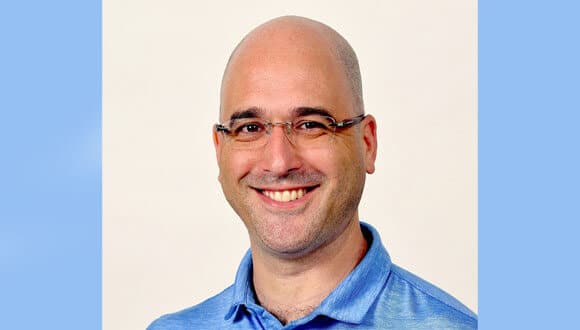The experiment that will allow us to be healthy even outside the earth will be launched into space today together with Eitan Stiva
Tel Aviv University is expected to launch a number of experiments into space that will be carried out by the Israeli who flew into space the second time, Eitan Stiva, as part of the "Sky" mission that will be launched under the leadership of the Ramon Foundation and the Israel Space Agency in April. One of these experiments is the first experiment of its kind for genetic diagnosis under microgravity conditions, using the CRISPR system (a region in DNA that consists of short repetitive sequences). The experiment is the work of Dr. Dodo Burstein from the Schmonis School of Biomedical and Cancer Research at the George S. Wise Faculty of Life Sciences, and Dr. Gore Pines from the Volcanic Institute.

From France to Tel Aviv and from there to space
CRISPR systems are immune systems of bacteria that are used to protect against viruses. The bacteria use CRISPR systems as a sort of molecular "search engine" to locate viral sequences, cut them and disable them. Two biochemists who deciphered the sophisticated defensive mechanism of viruses using CRISPR, Emmanuelle Charpentier and Jennifer Doudna, succeeded in rerouting it in order to carry out genetic editing in the DNA of a variety of organisms, including the DNA of human cells. Daudena and Charpentier received global recognition when they were named the 2020 Nobel Prize in Chemistry, and Dr. Burstein is a former student of Daudena. He stayed in her lab for several years as a postdoctoral student, so he learned the CRISPR field from the number one expert on the subject.
In the decade that has passed since the sensational discovery, CRISPR's uses are flourishing and it is also used as a powerful diagnostic tool. Among other things, today you can even find a corona test that allows you to quickly locate the RNA sequences of the virus. Now, the researchers are trying to prove that it is possible to use CRISPR diagnostic systems in order to find causes of disease and other medical problems in astronauts.
stay healthy even outside the earth
"In addition to their genetic editing capabilities, the CRISPR systems can also be used for simple and fast genetic diagnosis while maintaining high specificity, since very precise identification can be performed down to the level of the single 'letter' in DNA using these systems. At the same time, diagnostics with the CRISPR systems do not require expertise in molecular biology, and can be performed using minimalist equipment, and therefore they may be very suitable for use in long space missions, for example on the International Space Station or for future missions to explore the moon and Mars," explains Dr. Burstein.
As part of their scientific vision, the researchers hope that it will be possible to produce compact and convenient diagnostic kits for the astronauts to use. "As a first step, we will test various components of this diagnostic technology in microgravity conditions on the International Space Station. We hope to show that it will be possible to use the CRISPR systems to accurately identify bacteria and viruses that may attack crew members on space missions, and in the future even to diagnose diseases in space agriculture crops," says Dr. Borstein and adds: "It is important to remember that in space the conditions are extremely problematic and the methods of treatment are limited. That is why it is essential to locate the medical problem in a fast, reliable and uncomplicated way. Tests such as the PCR that we are all familiar with are less suitable because a skilled team and relatively complex equipment is required, so we believe that CRISPR is the way to go."
And if that's not enough, the necessity of tests of the type proposed by the researchers is increasing especially in light of studies indicating that pathogens may cause increased damage in space conditions.
"It's exciting to think about a future where humanity goes in the direction of longer and longer space missions and maybe even establishes colonies on space stations, the moon or other planets. Until that happens, we are trying to produce a sophisticated and broad basket of tools as possible that will help us stay healthy even outside the earth", concludes Dr. Borstein in an optimistic spirit.
More of the topic in Hayadan:
- The first full private mission Axiom Space-1 with the Israeli Eitan Stiva is ready for launch tomorrow
- Eitan Stiva will take wild seeds from the volcanic institute where his father worked, as a tribute to the institute's 100th anniversary celebrations
- Space mission experiments part 1: conducting remote tests and the effect of staying in space on the immune system
- Sky Task Experiments Part 2: Studies in the Brain
- Sky Mission Experiments Part 3: The rest of the medical experiments, space steak and the student experiments
